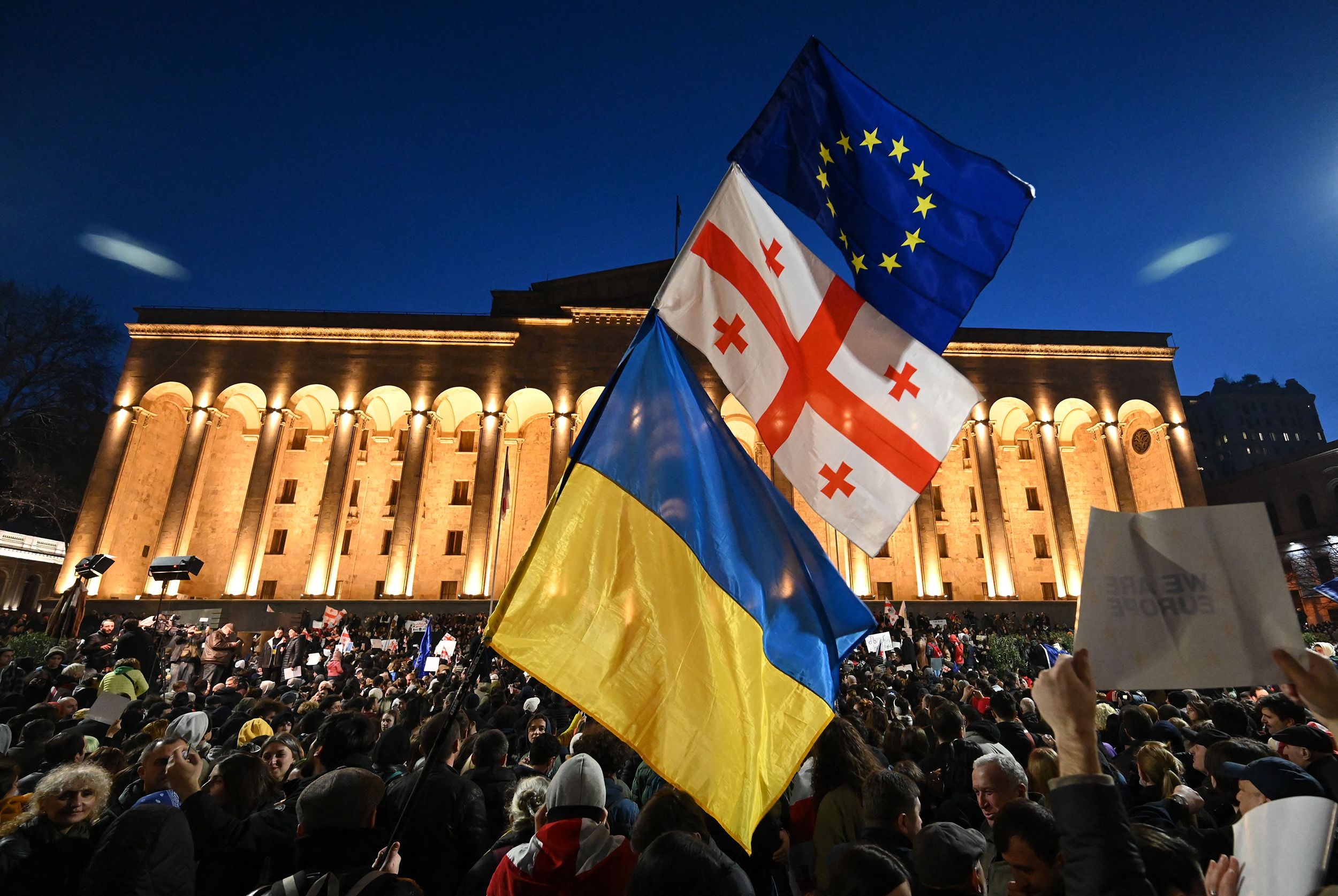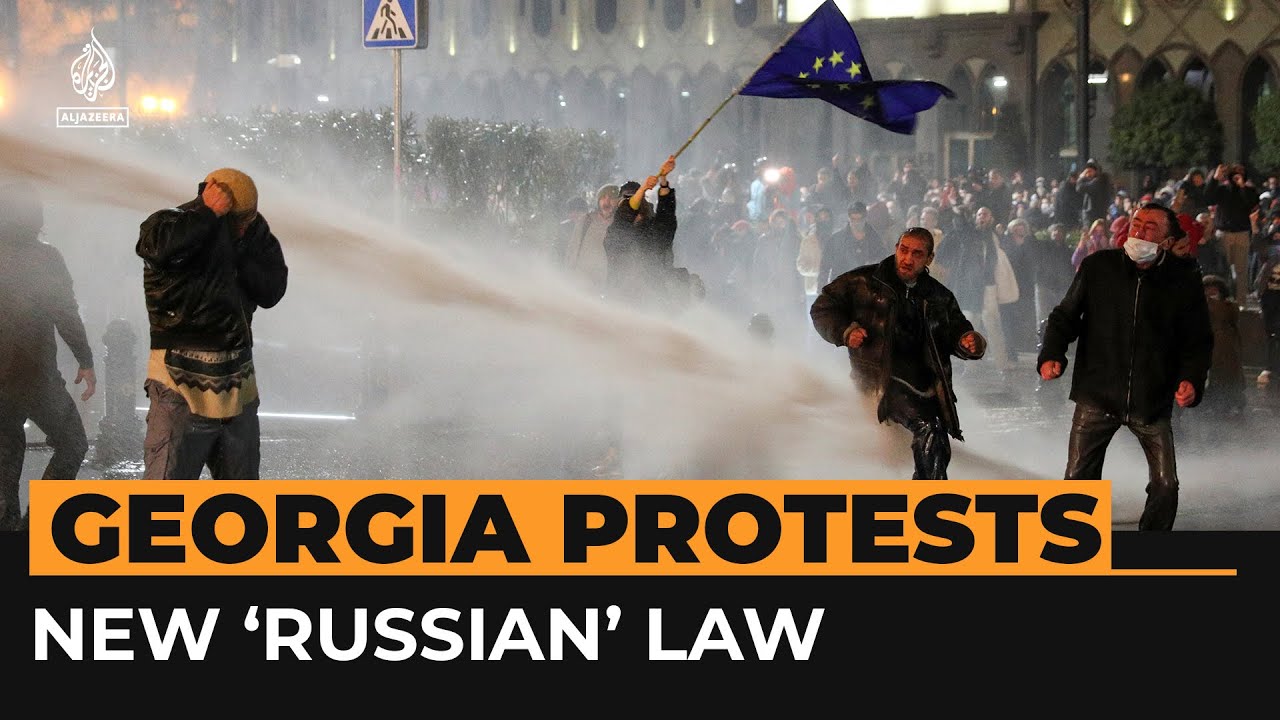Protests In Georgia - Citizens Rally Against "Foreign Agent" Bill
Thousands of Georgians have taken to the streets for a second consecutive day to protests in Georgia against a new bill that would designate some non-governmental organizations (NGOs) as "foreign agents."
Author:Hajra ShannonReviewer:Paula M. GrahamMar 09, 202351 Shares50.8K Views

Thousands of Georgians have taken to the streets for a second consecutive day to protests in Georgiaagainst a new bill that would designate some non-governmental organizations (NGOs) as "foreign agents."
The proposed legislation, which was passed by the Georgian Parliament on March 4, has sparked outrage among activists and civil society groups who say it is an attempt to stifle dissent and limit freedom of expression.
Tuesday, police deployed a water cannon and pepper spray to disperse protests. The government reported 50 injured police personnel and damaged equipment.
Over 66 individuals were arrested, including a leader of the opposition who was brutally beaten. Some Tbilisi protestors were observed wheezing and falling to the ground, while others waved EU and Georgian flags.
What Is The "Foreign Agents" Bill?
The bill, officially known as the Law on the Activities of Non-Governmental Organizations, would require NGOs that receive foreign funding and engage in "political activities" to register as "foreign agents" and comply with strict reporting and funding regulations.
Critics say the bill is modeled after similar legislation in Russia, where NGOs designated as foreign agents face government harassment and intimidation.
Georgia would join Belarus, Tajikistan, and Azerbaijan on the list of undemocratic and authoritarian post-Soviet governments that have replicated the Russian law restricting the activity of nongovernmental organizations (NGOs) if the bill were passed.
In Russia and Georgia, the term "agent" has historically meant "spy" and "traitor," lending a negative connotation to the activity of civil society. It implies that they are acting for the benefit of foreign powers rather than the nation and community.
The Protests
On March 7 and 8, thousands of Georgians gathered in the capital city of Tbilisi to demonstrate against the bill.
Protesters carried signs and chanted slogans denouncing the legislation and calling for greater government transparency and accountability.
Some activists say the bill is part of a broader crackdown on civil society in Georgia, which has seen a rise in authoritarianism and restrictions on freedom of speech in recent years.

Georgia protests turn violent over new ‘Russian’ law | Al Jazeera Newsfeed
International Response
The law has received substantial international criticism. It would require non-governmental and media organizations that get more than 20 percent of their financing from overseas to register as "foreign agents" or face incarceration and hefty fines.
The Georgian government has defended the bill, saying it is necessary to ensure transparency and prevent foreign interference in the country's politics.
However, the legislation has been criticized by human rights organizations and foreign governments, including the United States and European Union, who have called for it to be scrapped.
Some experts say the bill could have implications for Georgia's relationship with the West, particularly if it is seen as a move towards closer ties with Russia.
The protests in Georgia are ongoing, and many are watching closely to see how the government responds to the growing opposition to the "foreign agents" bill.
Final Words
The "foreign agent" bill proposed by the Georgian government has sparked massive protests across the country, with thousands of people taking to the streets for two consecutive days.
Protesters argue that the bill will stifle freedom of speech and undermine democratic principles in the country. The government, on the other hand, claims that the bill is necessary to prevent foreign influence and protect the country's national security.
The situation remains tense, and it is unclear what the outcome of the protests will be. However, one thing is clear: the Georgian people are committed to defending their rights and freedoms, and they will not back down until their voices are heard.

Hajra Shannon
Author

Paula M. Graham
Reviewer
Latest Articles
Popular Articles